A.C. Jordan Building
Item
Building Name
A.C. Jordan Building
Alternative Title
Arts Block
Description
Born on October 30, 1906, in a tiny village, Mbokotwana, to the Nobadula family of the Zengele clan in the Tsolo District of the Eastern Cape, Archibald Campbell (AC) Jordan was a professor, author, scholar, writer, linguist, literary critic, poet, musician, humanist, cricket player, nationalist, freedom fighter, revolutionary, Christian and gentleman. He began his formal education at a primary school in Mbokotwana. He then attended St. Cuthbet’s Mission Higher Boarding School in the Tsolo District, St. John’s College in Umtata and Lovedale Institution in Alice.
During the 1930’s, Jordan began his career in teaching. He earned his BA in English from the University College of Fort Hare in 1934. He received his MA in Bantu Languages (Linguistics) in 1943 from the University of Cape Town. Jordan became the first black African to be awarded a PhD in African Languages at UCT. He received his PhD in 1957.
Between 1937 and 1942, Jordan was Vice- President of the Orange Free State African Teachers’ Association. From 1943-1944, he served as president of the Orange Free State African Teachers’ Association. Also he was a member of the Cape African Teachers’ Association.
It was during 1940’s that Jordan became involved in a number of organisations and movements such as the Non-European Unity Movement (NEUM). He was a founding member of the Society of Young Africa (SOYA). As part of his social responsibility, Jordan was active in the establishment of a loan bursary fund for needy children in the Cape community and championed the cause of the needy in Langa and Nyanga.
Jordan launched his academic career as a lecturer in Bantu Languages at the University of Fort Hare in 1945. But his stay at Fort Hare was of short duration. He spent the bulk of his teaching career at the University of Cape Town where he became lecturer from 1946 to 1962. According to his wife, Phyllis (nee Ntantala), Jordan was criticised for his decision to leave Fort Hare University for the University of Cape Town. His retort to the criticism was, according to his wife, spelt out in the following terms:
I am going to UCT to open that (UCT) door and keep it ajar, so that our people too can come in. UCT on African soil belongs to US too. UCT can and will never be a true university until it admits US too, the children of the soil. I am going there to open that door and keep it ajar.
At UCT, Jordan was lecturer in Lestrade’s Language section of the School of African Studies. He had by then published his classic, Ingqumbo yeminyanya (The Wrath of the Ancestors, which Jordan himself translated into English. AC Jordan became famous for developing an original method of teaching Xhosa to non-speakers. He supported the general strike that brought about the events in Sharpeville.
Jordan might have succeeded in opening the UCT door and keeping “it ajar”, but he was not to stay at this University. In 1960, he was awarded a Carnegie travelling scholarship but was denied travel documents. He decided to leave for exile in 1962. He found apartheid, particularly the introduction of Bantu Education at tertiary level through the misnamed Extension of Universities Act of 1959 unbearable. He ended up resigning at UCT to, in the words of his wife “go start afresh somewhere”. In the process, he forfeited “his Pension Rights except what he had paid into”. He sought residence in Tanganyika (Tanzania), the United Kingdom, and the United States. In 1963, he became a professor at the University of Wisconsin (U.S) where he taught African Languages and Literature until his death in 1968.
Despite his untimely death, Jordan had a prolific academic and literary career. As a pioneer in Bantu languages and literature, he wrote much of his creative writings in Xhosa, his mother tongue. He authored several articles and manuscripts. His most famous work is, as already noted, Ingqumbo yeMinyanya (The Wrath of the Ancestors), which was published in isiXhosa by Lovedale Press in 1940 and, as already indicated, later translated into English. Other works include Toward an African Literature, the translation of Nomabhadi and the Mbulu-Xhosa folktales, the revising of Mesatywa’s Xhosa Idiom, and a Xhosa lessons manual. Source: NOBC Minutes
During the 1930’s, Jordan began his career in teaching. He earned his BA in English from the University College of Fort Hare in 1934. He received his MA in Bantu Languages (Linguistics) in 1943 from the University of Cape Town. Jordan became the first black African to be awarded a PhD in African Languages at UCT. He received his PhD in 1957.
Between 1937 and 1942, Jordan was Vice- President of the Orange Free State African Teachers’ Association. From 1943-1944, he served as president of the Orange Free State African Teachers’ Association. Also he was a member of the Cape African Teachers’ Association.
It was during 1940’s that Jordan became involved in a number of organisations and movements such as the Non-European Unity Movement (NEUM). He was a founding member of the Society of Young Africa (SOYA). As part of his social responsibility, Jordan was active in the establishment of a loan bursary fund for needy children in the Cape community and championed the cause of the needy in Langa and Nyanga.
Jordan launched his academic career as a lecturer in Bantu Languages at the University of Fort Hare in 1945. But his stay at Fort Hare was of short duration. He spent the bulk of his teaching career at the University of Cape Town where he became lecturer from 1946 to 1962. According to his wife, Phyllis (nee Ntantala), Jordan was criticised for his decision to leave Fort Hare University for the University of Cape Town. His retort to the criticism was, according to his wife, spelt out in the following terms:
I am going to UCT to open that (UCT) door and keep it ajar, so that our people too can come in. UCT on African soil belongs to US too. UCT can and will never be a true university until it admits US too, the children of the soil. I am going there to open that door and keep it ajar.
At UCT, Jordan was lecturer in Lestrade’s Language section of the School of African Studies. He had by then published his classic, Ingqumbo yeminyanya (The Wrath of the Ancestors, which Jordan himself translated into English. AC Jordan became famous for developing an original method of teaching Xhosa to non-speakers. He supported the general strike that brought about the events in Sharpeville.
Jordan might have succeeded in opening the UCT door and keeping “it ajar”, but he was not to stay at this University. In 1960, he was awarded a Carnegie travelling scholarship but was denied travel documents. He decided to leave for exile in 1962. He found apartheid, particularly the introduction of Bantu Education at tertiary level through the misnamed Extension of Universities Act of 1959 unbearable. He ended up resigning at UCT to, in the words of his wife “go start afresh somewhere”. In the process, he forfeited “his Pension Rights except what he had paid into”. He sought residence in Tanganyika (Tanzania), the United Kingdom, and the United States. In 1963, he became a professor at the University of Wisconsin (U.S) where he taught African Languages and Literature until his death in 1968.
Despite his untimely death, Jordan had a prolific academic and literary career. As a pioneer in Bantu languages and literature, he wrote much of his creative writings in Xhosa, his mother tongue. He authored several articles and manuscripts. His most famous work is, as already noted, Ingqumbo yeMinyanya (The Wrath of the Ancestors), which was published in isiXhosa by Lovedale Press in 1940 and, as already indicated, later translated into English. Other works include Toward an African Literature, the translation of Nomabhadi and the Mbulu-Xhosa folktales, the revising of Mesatywa’s Xhosa Idiom, and a Xhosa lessons manual. Source: NOBC Minutes
Address
6 University Avenue South,Upper Campus, Rondebosch
Campus
Upper
Latitude
-33.958317
Longitude
18.461356
Building Number
119
Building Code
1190
status
Owned
Linked resources
Filter by property
| Title | Alternate label | Class |
|---|---|---|
 Un- Titled series a) Critical essays on Modernism Un- Titled series a) Critical essays on Modernism |
Building | Physical Object |
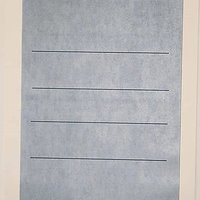 Un- Titled series b) Image, Music, Text Un- Titled series b) Image, Music, Text |
Building | Physical Object |
 Un- Titled series c) The Practice of Everyday life Un- Titled series c) The Practice of Everyday life |
Building | Physical Object |
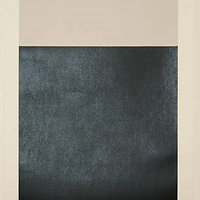 Un- Titled series d) Towards a Philosophy of Photography Un- Titled series d) Towards a Philosophy of Photography |
Building | Physical Object |
 Condemned Condemned |
Building | Physical Object |
 Storm on the boss's farm Storm on the boss's farm |
Building | Physical Object |
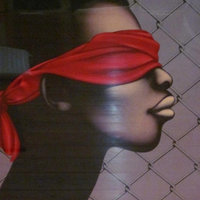 Dreamcloth Dreamcloth |
Building | Physical Object |
 Unidentified Unidentified |
Building | Physical Object |
 Walls without clouds Walls without clouds |
Building | Physical Object |
 Botailles Bad Boys Botailles Bad Boys |
Building | Physical Object |
 Freud's Little Dancers Freud's Little Dancers |
Building | Physical Object |
 The Postmodern Condition The Postmodern Condition |
Building | Physical Object |
 Essays on Art and Language Essays on Art and Language |
Building | Physical Object |
 Postproduction Postproduction |
Building | Physical Object |
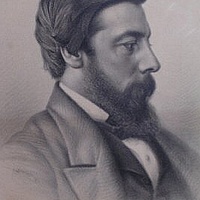 Portrait of Prof Roderick Noble Portrait of Prof Roderick Noble |
Building | Physical Object |
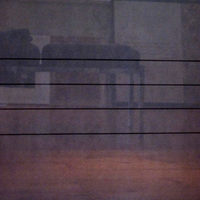 Straightness but not Straight Straightness but not Straight |
Building | Physical Object |
 Lessness but not Least Lessness but not Least |
Building | Physical Object |
| Title | Alternate label | Class |
|---|---|---|
 Day 1 - Salvage process of Jagger Library Day 1 - Salvage process of Jagger Library |
Image | |
 Day 2 - Salvage process of Jagger Library Day 2 - Salvage process of Jagger Library |
Image | |
 Day 2 - Salvage process of Jagger Library Day 2 - Salvage process of Jagger Library |
Image | |
 Day 2 - Salvage process of Jagger Library Day 2 - Salvage process of Jagger Library |
Image |
| Title | Alternate label | Class |
|---|---|---|
 Day 1 - Salvage process of Jagger Library Day 1 - Salvage process of Jagger Library |
Image | |
 Day 2 - Salvage process of Jagger Library Day 2 - Salvage process of Jagger Library |
Image | |
 Day 2 - Salvage process of Jagger Library Day 2 - Salvage process of Jagger Library |
Image | |
 Day 2 - Salvage process of Jagger Library Day 2 - Salvage process of Jagger Library |
Image |



